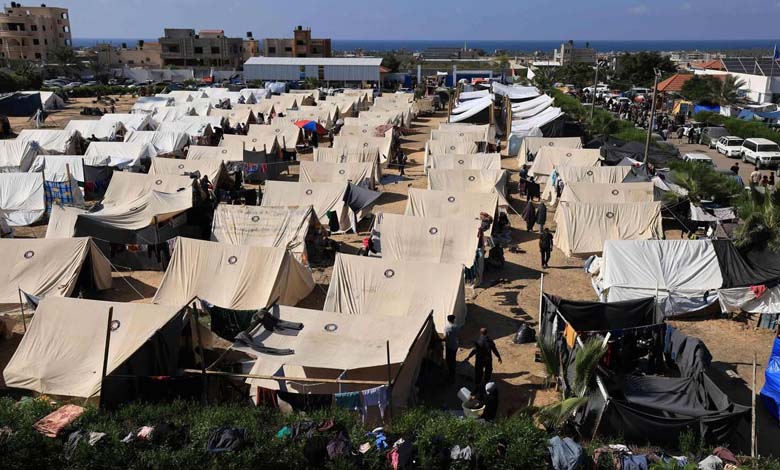Israeli plan to transfer Palestinians to Egypt for $30 Billion

An Israeli study suggests that Palestinians could be relocated to the Sixth of October and Tenth of Ramadan cities, claiming that the regional and international conditions favor this move.
Despite Egypt‘s strong rejection of any plan to transfer Palestinians to the Sinai Desert, considering it a threat to Egyptian national security and a liquidation of the Palestinian cause, Israel officially denies these claims. However, some Israeli strategic centers continue to discuss these alternatives, indicating Western and American support for this option.
The Israeli Institute for National Security Studies and Zionist Strategy pointed out some precise details of the Palestinian relocation plan in Gaza and their placement in camps in the Sinai Peninsula, according to a study called the “Final Resettlement and Rehabilitation Plan in Egypt for All Gaza Residents: Economic Aspects.”
The strategic analyst behind the study, Amir Weitmann, argues that Egypt‘s current economic crisis will be a bargaining chip, and Egypt could be convinced to accept the relocation plan in exchange for substantial financial benefits.
It appears that Hamas anticipated this development as sources within the organization claimed that US President Joe Biden would offer Egypt debt relief in exchange for approving the relocation plan. Israeli writer Edy Cohen was the first to suggest the idea, stating in a tweet, “Settling Palestinians in Sinai in exchange for erasing Egypt‘s foreign debt, think about it,” and he pointed out that the idea is not new.
He continued, “Egypt will accept this solution due to its economic crisis and the possibility of American support for the idea, and it is also impossible to prevent refugees from entering its borders.” Egypt is indeed experiencing an economic crisis, with a devaluation of the Egyptian pound and a shortage of foreign currency reserves, as the presidential elections approach, where Egyptian President Abdel Fattah el-Sisi is seeking another term.
The Israeli study argues that the opportunity is unique and rare and that evacuating Gaza in cooperation with the Egyptian government would be in everyone’s interest, including Egypt and Saudi Arabia. El-Sisi firmly rejected any talk of transferring and resettling Palestinians in Sinai, calling it a red line and urging Palestinians to stay in their land to prevent the liquidation of their cause. The Israeli ambassador to Egypt, Amira Oron, denied any intentions to relocate Gaza residents to Sinai, stating that her country remains committed to the peace treaty with Egypt.
However, the Egyptian president faced Israeli and Western pressure by inviting Israel to move Palestinian refugees to the Negev Desert, sparking widespread controversy and significant criticism. But the Israeli study provided detailed insights into the relocation process, claiming that there is favorable infrastructure in Egypt to accommodate the Palestinians, citing reports from 2017 that indicated approximately 10 million vacant housing units in Egypt, about half of which were under construction, and the other half were already built.
The study further explained, “In the two largest satellite cities near Cairo, ‘Sixth of October’ and ‘Tenth of Ramadan,’ there is an enormous quantity of government-owned and privately owned vacant housing units, with building areas sufficient to accommodate about 6 people per housing unit, which means it could potentially accommodate a million people, half of Gaza’s population.”
The Israeli study indicates that the economic incentives offered to Egypt would be substantial, ranging from $20 to $30 billion, a sum described as modest and cost-effective compared to the strength of the Israeli economy, but it is innovative and sustainable.
The study also revealed that Israel would utilize the land in Gaza after its residents have been relocated for investment purposes, including the construction of settlements and high-quality residential complexes for Israelis, which would give a significant boost to settlement activities in the Negev.
Amir Weitmann in the study suggests that Saudi Arabia would benefit from the plan by removing an Iranian ally, referring to Hamas, and utilizing Gaza residents as a workforce, saying, “A significant number of Gaza residents will seize the opportunity to live in a wealthy and advanced country like Saudi Arabia instead of continuing to live in poverty under Hamas‘ rule.”
Weitmann speaks of a possible and imminent agreement within days between Egypt and Israel, stating that Cairo could host 2 million Palestinians, roughly 2 percent of Egypt’s total population.












